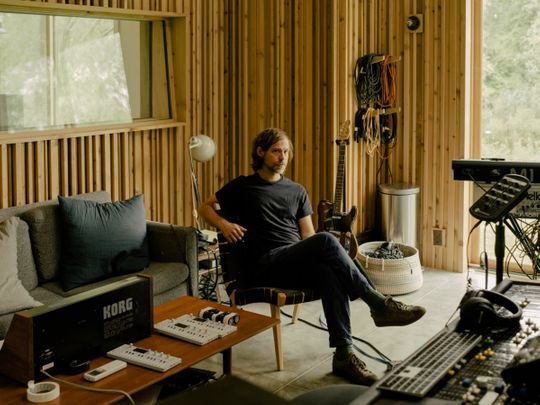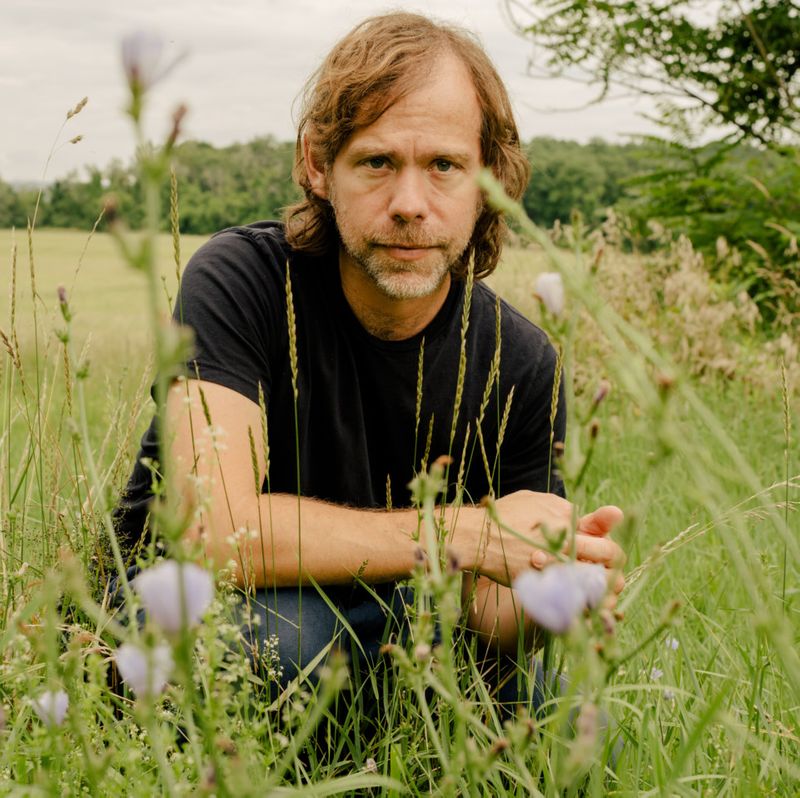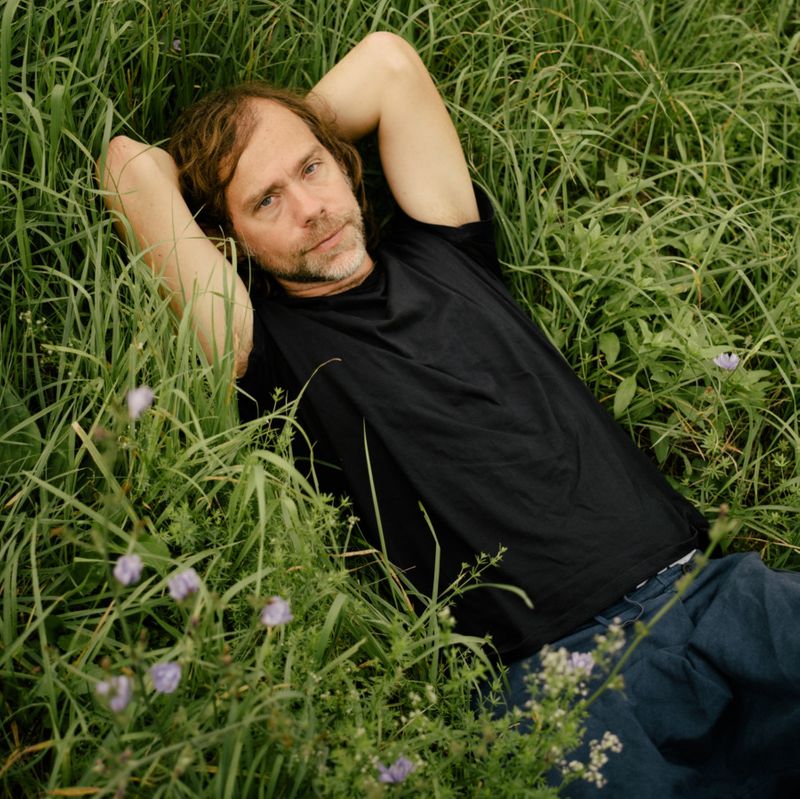
Aaron Dessner sat down at the black upright piano in his Long Pond Studio, pressed the soft pedal and played a four-note phrase that had changed his life. It was the first notes — G F E-flat F — of a music file he sent to Taylor Swift in March 2020.
Swift had been a fan of Dessner’s long-running indie-rock band, the National, and she contacted him out of the blue as the pandemic shutdown was beginning. “One night I was just sitting at dinner,” Dessner recalled, “and I got a text saying, ‘This is Taylor. Would you ever be up for collaborating remotely with me?’
“I was flattered and said, ‘Sure,’” he continued. “She said, ‘Just send anything, even the weirdest random sketch that you have,’ and I sent her a folder of stuff I’d been working on. And then a few hours later, she sent that song, ‘Cardigan.’”

“Cardigan” — which became a No. 1 hit — started the collaboration that grew into Swift’s two career-repositioning 2020 albums, ‘Folklore’ and ‘Evermore’. The creative partnership didn’t end there: She wrote and sings ‘Renegade’ for Dessner’s own indie recording project, Big Red Machine, and supplied the title for its second album, ‘How Long Do You Think It’s Gonna Last?’, which arrives Aug. 27.
“We talked a lot about, how did it actually happen that we made so many songs together in such a short period of time?” Dessner, 45, said in a conversation on his lawn, looking over the pond. “It’s kind of abnormal, and it’s hard to sustain. You have this streak going, but you don’t know when the ideas or the inspiration or the spark will extinguish.”
For Swift, Dessner’s music unlocked new ideas. “The quality that really confounded me about Aaron’s instrumental tracks is that to me, they were immediately, intensely visual,” Swift wrote in an email. “As soon as I heard the first one, I understood why he calls them ‘sketches.’ The first time I heard the track for ‘Cardigan’, I saw high heels on cobblestones. I knew it had to be about teenage miscommunications and the loss of what could’ve been.”
She added, “I’ve always been so curious about people with synaesthesia, who see colours or shapes when they hear music. The closest thing I’ve ever experienced is seeing an entire story or scene play out in my head when I hear Aaron Dessner’s instrumental tracks.”

The studio is in a converted barn a few steps from Dessner’s house near Hudson, New York. It’s an open room with a church-high ceiling, tall windows and a woodland view, neatly set up to record any of his instruments — guitars, keyboards, drums, percussion — whenever an idea strikes. He can open it up to let in the sounds of birds, insects, frogs or the wind in the trees. Dessner has recorded most of his music at Long Pond since making the National’s 2017 album, ‘Sleep Well Beast’.
During the pandemic, he has kept busy there.
“For someone like me who’s travelled for 20 years, rarely with more than a month or two off completely from touring, it was good to be home for almost two years, where I’m just in this beautiful place,” he said. “I’ve made heaps more music than I had ever made before. And I think it’s allowed me to elevate or push what I was doing, and take it to different places.”
Dessner founded Big Red Machine with Justin Vernon, who records as Bon Iver and is known outside indie circles for working with Kanye West. The new album also draws on, as Dessner said, “almost everyone I’ve made a record with.” That includes his twin brother, Bryce, who is also a member of the National, along with songwriters Robin Pecknold (of Fleet Foxes), Anais Mitchell (whose musical based on the myth of Orpheus and Eurydice, “Hadestown,” will reopen on Broadway in September), Sharon Van Etten, Lisa Hannigan, Naeem, Ben Howard and others.
“Establishing and contributing to a musical community matters so much to Aaron,” Swift wrote. “He’s technically in the music ‘industry,’ but really all he wants to do is play and make music with his friends.”
Paradoxically, Big Red Machine’s sprawling collective effort grew into something deeply personal. As Dessner and the other musicians put together the songs, largely remotely, themes coalesced: childhood memories, lost innocence, struggles with mental health. And after years of working in the background — with the National and as a producer for other songwriters — Dessner has stepped forward, for a few songs, as a lead singer.
“I remember he was really nervous about having his own lead vocals on there,” Mitchell said by phone from Vermont. “And I was like, absolutely — you should do that. Especially given his work with Taylor over the last year, it felt like really nice to have people get a look behind that curtain, to get to know the person who’s behind a bunch of this stuff.”

Big Red Machine is not exactly a band. “To me it’s like a laboratory for experimentation and also a vehicle to collaborate with friends and try to grow,” Dessner said. “And also to just reconnect with the feeling of what it’s like when you first start playing music — what it’s like when you’re making stuff without really knowing what it is.”
Dessner’s musical fingerprint is a fondness for patterns: evocative little motifs that can interlock in complex ways. In the songs that the National has been releasing since its 2001 debut, they can be soothing and meditative, or they can hint at the agitation behind a pensive exterior. For Dessner’s collaborators, those little musical cells help spawn larger structures.
“I’ll catch myself in little patterns, where I get this feeling that you could build some sort of architecture out of it,” he said. “A lot of times there is something a little odd about the timing, or something I may have lifted out of a classical piece I heard. There’s a kernel, and then I start to build.”
Dessner and Swift recorded ‘Renegade’ in Los Angeles, during the week leading up to the 2021 Grammy Awards; days later, as producer and performer, they shared the award for album of the year for ‘Folklore’ (along with the album’s other producer, Jack Antonoff). Dessner already had a Grammy — best alternative album for the National’s “Sleep Well Beast” — but this was a much higher pop profile; lately he has been “approached by people,” he said.
“I love colliding with new people and learning from people, so it’s an exciting time,” he said. “But I also tend to be kind of shy. I like the idea that I could count my collaborators on one or two hands, to stay with this family feeling. So I’m not rushing out to work with a million people. It’s not really my personality.”
He added, “I’ve yet to make something where I’m feel like I’m trying to satisfy a commercial instinct. I don’t totally know how I would do it. I don’t know that I have the skills to do it.”
Not ready to gear up his own hit factory? He shrugged. “I guess I could move to LA and set that up,” he said. “But it wouldn’t end well.”









